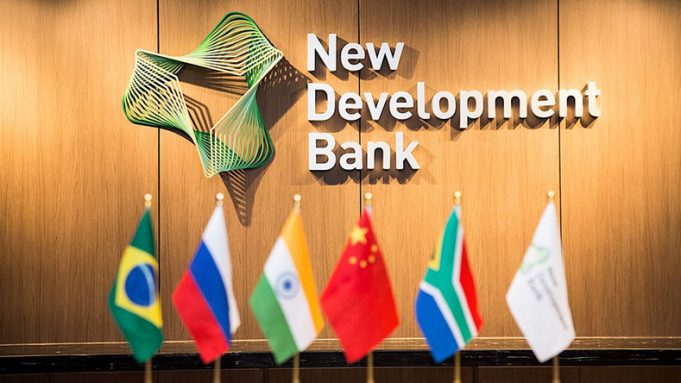
2015 é um ano potencialmente importante para o posicionamento internacional brasileiro, foi quando foi criado o Novo Banco de Desenvolvimento (https://www.ndb.int/) pelos países formados do BRICS (Brasil, Rússia, Índia, China e África do Sul). O Banco veio como uma alternativa aos já consolidados Banco Mundial (https://www.worldbank.org/en/who-we-are/ibrd) e Banco Interamericano de Desenvolvimento (https://www.iadb.org/pt/sobre-o-bid/visao-geral). Ainda que o primeiro também esteja sob forte influência europeia, ambos estão numa esfera de controle dos Estados Unidos.
Em termos gerais, o Banco dos BRICS se foca no apoio ao desenvolvimento de obras estruturais, especialmente ligadas à infraestrutura. Por outro lado, tem também uma função política importante, ao mostrar ao mundo que os países dos BRICS estão dispostos a injetar recursos no Banco para que, na sequência, sejam redistribuídos aos países do grupo. Com isso, mostram uma disposição para cooperar e construir alternativas.
Agora o Banco entra numa nova fase, na qual novos países acionistas poderão se juntar. Cada país-membro poderá convidar até três novos acionistas, o que indica a vontade de crescimento político da proposta. A entrada de novos membros, mesmo não fazendo parte do BRICS, faz com participem de forma ativa numa nova estrutura de poder internacional. Ainda é cedo para dizer quais países quererão se juntar, mas está ficando claro que o movimento não é resumido a apenas essas três indicações iniciais.
Num momento de aumento das tensões globais em torno do macro-modelo de poder a prevalecer nas relações internacionais, todos esses movimentos são ensaios de ordenações. Os europeus estão fechados em seus desafios internos, buscando a manutenção do bloco, de forma a evitarem grandes engajamentos internacionais que podem levar a diferenças de posições entre seus membros. Os Estados Unidos, por sua vez, têm apresentado uma liderança internacional errática nos últimos anos. A China tem ensaiado uma retomada de sua relevância global há anos e agora parece mais confiante em defender o que acredita ser o seu papel no mundo.
O resultado é o ensaio de uma estrutura global em que Estados Unidos lideram o modelo vigente e China se esforça para construir um modelo alternativo. Não chegaria a afirmar que viveremos uma nova Guerra Fria, só que com a substituição de um dos oponentes. Mas podemos dizer que vivemos um novo Bretton Woods (https://www.ipea.gov.br/desafios/index.php?option=com_content&view=article&id=2247:catid=28&Itemid=23), na medida em que está aparecendo a oportunidade de recriação de um esforço de estruturação do sistema político-econômico global. Tensões militares latentes que podem desembocar em uma guerra propriamente dita parece improvável no momento, mas o enfraquecimento de instituições moldadoras da realidade internacional e o surgimento de outras mostram esse movimento em potencial.
BRICS e o Novo Banco de Desenvolvimento certamente não são instituições capazes de moldar uma nova estrutura de poder internacional, já que teriam que ser capazes de substituir as ainda importantes (ainda que decadentes em termos de capacidade de organização das relações internacionais) ONU e OMC. No entanto, são ensaios de projeção de poder e que podem indicar o caminho para esse rearranjo global.
O Brasil está em uma posição de vantagem neste debate por ser um membro original dos BRIC (que tem o S da África do Sul anexado quase 10 anos depois do conceito). No momento, estamos desperdiçando essa vantagem e não dar a real importância ao grupo, transformando-o em um dos pilares reais de nossa política externa. Se não acordarmos logo para isso, poderá ser tarde demais.
Pós-Doutor em Competitividade Territorial e Indústrias Criativas, pelo Dinâmia – Centro de Estudos da Mudança Socioeconómica, do Instituto Superior de Ciencias do Trabalho e da Empresa (ISCTE, Lisboa, Portugal). Doutor em Relações Internacionais pela Universidade de Brasília (2007). É Diretor Executivo do Mapa Mundi. ORCID https://orcid.org/0000-0003-1484-395X
